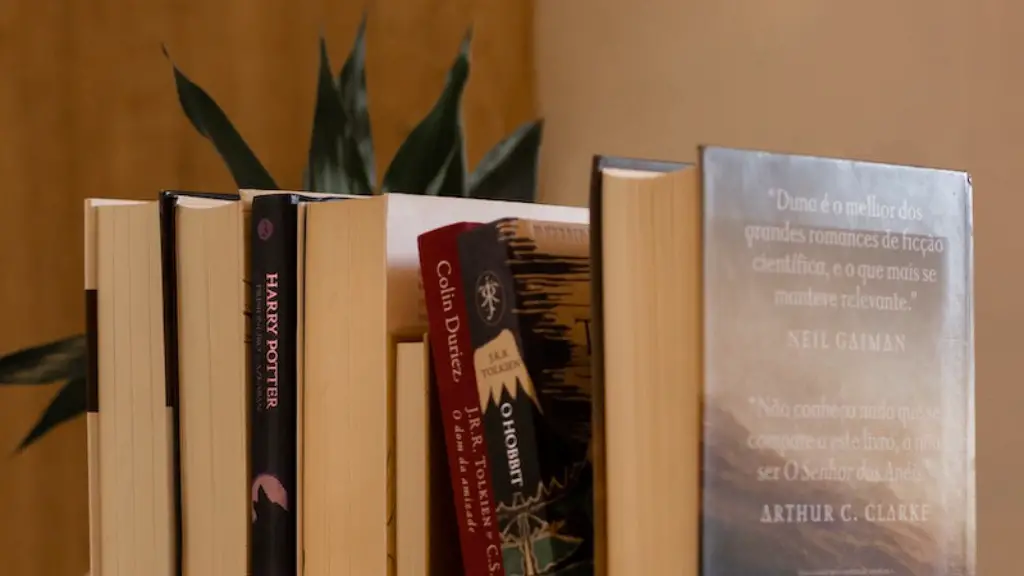Metaphysical poetry is a special kind of poetry that combines medieval, baroque, and contemporary elements and is heavily based on philosophical and intellectual ideas. This poetic form has a wide range of topics, but its main focus is on the exploration of religious and philosophical questions. Metaphysical poetry is known for its complex yet inventive structures and its exploration of themes such as death, love, and religion in unique and sometimes challenging ways.
The most defining characteristic of metaphysical poetry is its use of extended metaphors and elaborate conceits. These extended metaphors, also known as “conceits”, are a key element in metaphysical poetry and often convey deep philosophical truths in a poetic form. In metaphysical poetry, these extended metaphors are often created by taking common objects and abstract concepts and pairing them together in such a way as to produce a powerful effect.
Metaphysical poets also use complex syntax and require the reader to use an intellectual approach to understand the message. Metaphysical poetry often contains intricate symbolism and images, which the reader must use to reach the truism of the poem. Additionally, the best metaphysical poetry often deals with the subject of mortality and the human condition. Metaphysical poets often explore these themes on a deep, philosophical level.
Another characteristic of metaphysical poetry is its use of provocative language. Language in metaphysical poetry often has a subversive quality. Words such as “love”, “death”, and “despair” are used to explore the deepest corners of the human experience. Metaphysical poets are often willing to approach the most challenging topics with poetic flair and intellectual depth.
Finally, metaphysical poetry is often marked by its use of rhyme, meter, and genre. Metaphysical poets use a variety of rhyme schemes and poetic forms. This allows the poet to create a unique structure while still exploring the same philosophical themes with depth and complexity. Metaphysical poets often express complex messages and ideas through traditional poetic forms.
Religion in Metaphysical Poetry
Religion is another important theme in Metaphysical poetry. Metaphysical poets often explore religious themes, often in unconventional ways. In These metaphysical poetic poems, the poets seek to confront and interrogate traditional concepts of religion and spirituality. Metaphysical poems often attempt to uncover a deeper meaning in the presence of faith and religion, and to explore its implications for the human experience.
This exploration of religious themes is often done from a unique perspective. Metaphysical poems often attempt to show that there is a sense of mystery to the universe, beyond that of our own scientific understanding. Religious themes can also be explored through their use of traditional conveys and imagery, including angels, demons, and various gods and goddesses.
In metaphysical poetry, these religious themes often serve as a backdrop or catalyst for the examination of broader philosophical questions and themes. Many of the best metaphysical works seek to explore the concept of what will happen after death and what lies beyond life’s finite form. In this way, metaphysical poetry often operates as a kind of spiritual journey, exploring questions of what lies beyond our own brief moments on this planet.
Love in Metaphysical Poetry
Love is another important theme in metaphysical poetry. Love poetry is a common subgenre of metaphysical poetry and often contains a powerful blend of intense emotion, intellectual exploration, and philosophical inquiry. Through their exploration of love, metaphysical poets seek to understand the deeper meanings and implications of the emotion.
Metaphysical poets often explore themes such as desire, longing, and interpersonal relationships from an intellectual and philosophical point of view. Love in metaphysical poetry often serves as a vehicle for exploring more philosophical concepts, such as mortality, faith, and man’s relationship to the divine.
Metaphysical poets often use intense imagery and powerfully evocative language to explore these emotional themes. Love in metaphysical poetry often serves as fodder for philosophical exploration, offering a unique way to approach traditional questions and themes.
At its core, metaphysical poetry is a type of poetry that explores religious, philosophical, and emotional themes in intricate and evocative ways. Metaphysical poetry is often marked by its use of extended metaphors, complex syntax, and provocative language. It is also characterized by its exploration of religious and philosophical themes, as well as its exploration of mortality and the human condition. Metaphysical poets often use traditional forms and conveys to explore these topics in unique and challenging ways.
Metaphysical Poetry and Modernity
Metaphysical poetry often presents a unique view of modernity and modern life. Metaphysical poets often use their poetry as a way to explore the implications of technological progress, social changes, and man’s ever-evolving relationship with technology. Metaphysical poems often provide insightful and thought-provoking commentary on the issues of the day.
Additionally, metaphysical poetry often uses technological and scientific advances to further explore and expand on traditional themes. For example, many metaphysical works explore the concept of death in the age of modern technology and science. In this way, metaphysical poetry uses the tropes of modernity to explore the larger themes of mortality, faith, and man’s place in the universe.
In metaphysical poetry, modernity often serves as a backdrop for exploring the further implications of deeper themes. Metaphysical poets often attempt to understand the implications of modern advancements in relation to the larger questions of life and mortality. In this way, metaphysical poetry often takes a unique and engaging approach to exploring modern life.
Exploring the Human Condition
At its core, metaphysical poetry is a type of poetry that seeks to explore the human condition and its place in the larger world. Metaphysical poetry often uses themes such as mortality, faith, and love to examine the implications of the human experience. It often combines evocative imagery, philosophical inquiry, and intellectual exploration to dig deep into the questions of life and its implications.
Metaphysical poetry often attempts to explore the idea of human mortality and man’s relationship with the divine. It explores the boundaries between life and death and examines how mankind fits into the larger picture. In this way, metaphysical poetry often takes a unique and thought-provoking approach to exploring the human condition.
At its core, metaphysical poetry seeks to explore the depths of the human experience. It often combines extended metaphors, complex syntax, and intrusive imagery to explore the profound implications of life and death, faith and love. In this way, metaphysical poetry presents a unique perspective on mankind and its place in the universe.
Metaphysical Poetry and the Reader
Metaphysical poetry requires the reader to bring an intellectual approach to the poem. This can often be a challenging task, as the complexity of the language and symbolism can be difficult to decipher. In this way, readers need to exercise great patience and care to understand the complex messages and ideas contained in metaphysical poetry.
Additionally, readers of metaphysical poetry need to have an open mind. This type of poetry often presents unconventional ways of viewing traditional topics and themes. Readers must be willing to consider different perspectives and different ways of thinking in order to fully appreciate the message and meaning of metaphysical poetry.
Metaphysical poetry often presents puzzles for the reader to decipher and unravel. The best metaphysical poetry can often be found in the most unexpected places, and the rewards for readers who patiently unravel the complex language and syntax can be great. By taking the time to understand the messages of metaphysical poetry, readers can often gain a richer and deeper understanding of the complexities of the human experience.
Metaphysical Poetry and Its Impact
Metaphysical poetry has had a lasting impact on both the literary world and the broader philosophical community. The complex language and provocative themes explored in metaphysical poetry continue to influence writers and philosophers today. Many of the core concepts explored in metaphysical poetry, such as mortality and love, continue to resonate with readers and thinkers around the world.
Throughout the centuries, metaphysical poetry has served as a source of insight and inspiration for writers and thinkers alike. By engaging with the complex and emotionally powerful language of metaphysical poetry, readers can often gain new perspectives on traditional topics and further develop their own understanding of the human experience.
Metaphysical poetry remains an important and influential part of the literary canon. Its complex language, innovative structures, and unique perspectives continue to challenge and inspire readers and writers from around the world. By exploring the depths and complexities of metaphysical poetry, readers can often gain a deeper understanding of the human condition.





